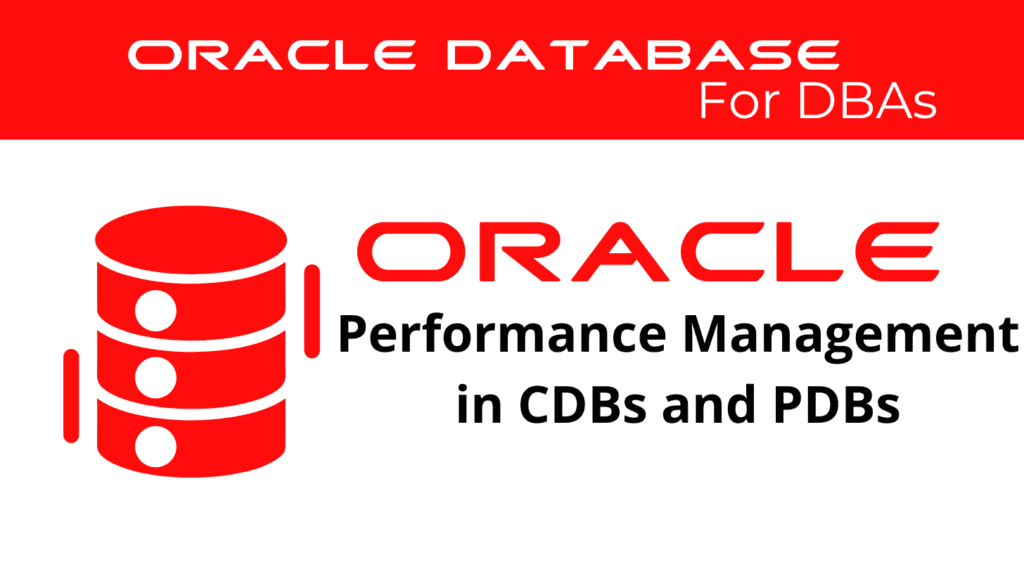
In the world of Oracle databases, managing performance in Container Databases (CDBs) and Pluggable Databases (PDBs) is essential. Effective performance management ensures that the DBs operate smoothly and efficiently. This guide will explore the key aspects of performance management in CDBs and PDBs, focusing on performance tuning and database optimization.
CDB Performance
Managing the performance of a CDB involves various tuning techniques and strategies. These include adjusting system parameters, optimizing resource allocation, and monitoring database activities.
For instance, configuring the SGA_TARGET parameter can significantly impact the overall performance of the CDB. By allocating an appropriate amount of shared memory, you can enhance the performance of all PDBs within the CDB.
ALTER SYSTEM SET SGA_TARGET = 4G SCOPE = BOTH;
Similarly, tuning the PGA_AGGREGATE_TARGET parameter helps in managing the memory used for SQL operations, thereby improving query performance and resource utilization.
ALTER SYSTEM SET PGA_AGGREGATE_TARGET = 2G SCOPE = BOTH;
Regularly monitoring and analyzing the performance metrics of the CDB allows for timely adjustments and ensures optimal performance.
PDB Performance
PDB performance tuning is crucial for maintaining the efficiency of individual PDBs. Each PDB can have unique performance requirements based on the applications it supports.
Adjusting the CPU_COUNT parameter for a PDB can help in allocating the appropriate amount of CPU resources, ensuring that the PDB performs efficiently without affecting other PDBs in the same CDB.
ALTER SESSION SET CPU_COUNT = 2;
Moreover, optimizing the DB_CACHE_SIZE parameter for each PDB helps in managing the cache memory, leading to better I/O performance.
ALTER SYSTEM SET DB_CACHE_SIZE = 1G SCOPE = BOTH;
Effective PDB tuning involves continuous monitoring and making necessary adjustments to ensure each PDB operates at its best.
📢 You might also like: Control CDB and PDB Resource Usage with the Oracle Resource Manager (Category: Oracle Database Admin)
CDB Tuning
CDB tuning involves a comprehensive approach to optimize the entire database environment. This includes adjusting system-wide parameters, monitoring performance metrics, and ensuring efficient resource utilization across all PDBs.
For example, setting the LOG_BUFFER parameter appropriately can enhance the performance of redo log operations, which is crucial for transaction-heavy databases.
ALTER SYSTEM SET LOG_BUFFER = 64M SCOPE = SPFILE;
Additionally, the PROCESSES parameter needs to be configured to support the required number of concurrent processes, ensuring smooth database operations.
ALTER SYSTEM SET PROCESSES = 500 SCOPE = SPFILE;
Regular audits and performance reviews are essential for maintaining optimal performance in a CDB environment.
PDB Tuning
PDB tuning focuses on optimizing individual PDBs for specific workloads and applications. This includes adjusting memory parameters, configuring performance-related settings, and monitoring performance metrics.
For instance, setting the OPEN_CURSORS parameter for a PDB can help manage the number of concurrent cursors, improving performance for applications that require multiple simultaneous queries.
ALTER SYSTEM SET OPEN_CURSORS = 300 SCOPE = BOTH;
Similarly, the SHARED_POOL_SIZE parameter can be tuned to manage the memory allocated for SQL execution plans, enhancing overall query performance.
ALTER SYSTEM SET SHARED_POOL_SIZE = 500M SCOPE = BOTH;
Continuous performance monitoring and proactive tuning ensure that each PDB operates efficiently and effectively.
See more on Oracle’s website!
Conclusion
Effective performance management in CDBs and PDBs is vital for maintaining a smooth and efficient database environment. By understanding and implementing the appropriate tuning techniques, administrators can ensure optimal performance and resource utilization. This guide provides a foundation for managing performance in Oracle databases, helping to keep your systems running at their best.
Be Oracle Database Certified Professional, this world is full of opportunities for qualified DBAs!





